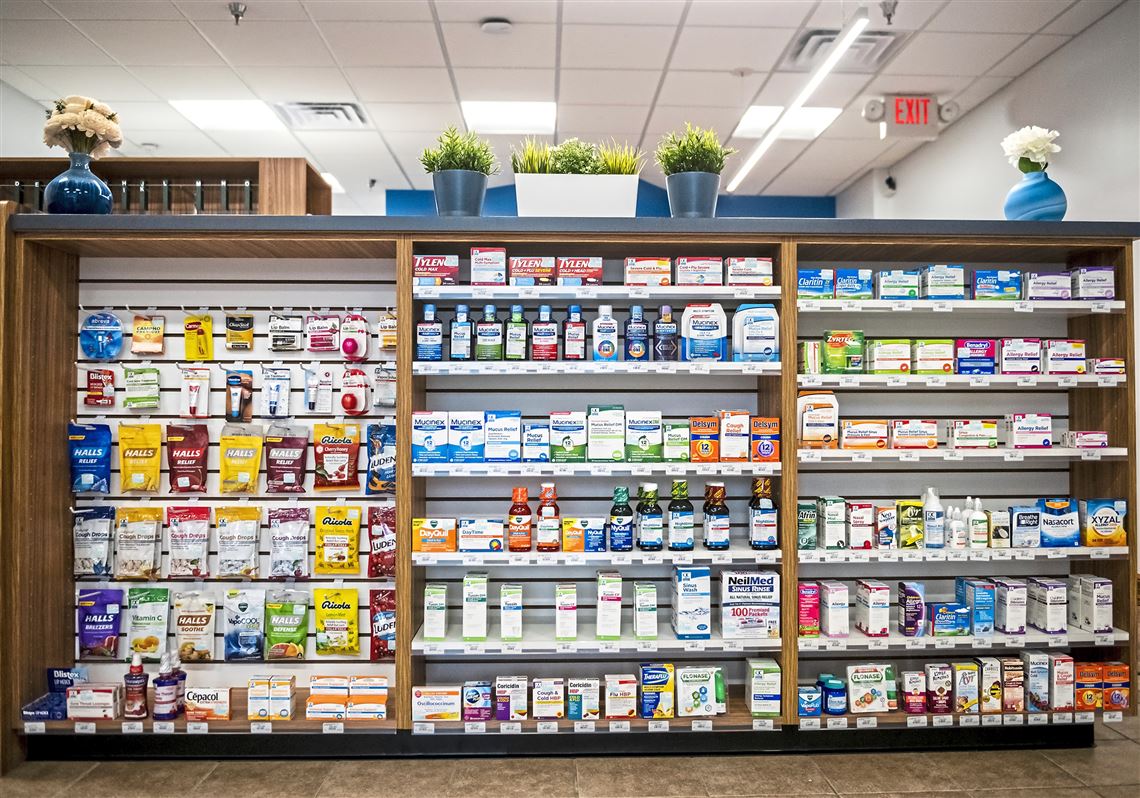Individuals everywhere rely on pharmacies to access their medications, and small pharmacies in particular play a critical role in helping communities thrive by fostering support, care and connection among community members.
I opened Blueberry Pharmacy in West View in March of 2020, and from the beginning, our whole focus has been on getting patients transparently priced, affordable medications through a different model than traditional pharmacies, in which Pharmacy Benefit Managers (PBMs) demand higher rebates or discounts for themselves and create higher drug prices for patients.
I was compelled to act when I saw patients of traditional pharmacy models being charged a $300 copay for a drug that cost the pharmacy $5. It was wrong and didn’t make sense. I knew there had to be a way to get patients cheaper prices for medications.
Since opening Blueberry Pharmacy, I haven’t stopped learning about the many ways vulnerable patients are taken advantage of by insurers and PBMs focused on their own bottom line. PBMs contract with insurance companies to create pharmacy networks that dictate what medicines a patient can get and how much they will pay for it, and even demand patients get these medications from their PBM-owned pharmacy.
These aren’t things we learned in pharmacy school — these are lessons that come from hearing directly from patients about their health and needs, and the uphill battles they fight to access medications and treatments at affordable prices.
Take, for instance, some of the most expensive medicines, or “specialty drugs” — treatments used to treat cancers or other life-threatening diseases, which usually have no generic alternative. Some examples of true specialty drugs are Humira (commonly used for types of arthritis), Dupixent (commonly used for eczema) and Revlimid (a chemotherapy agent). You’d think these drugs would be categorized very clearly, but there’s a huge discrepancy between the number of true “specialty drugs” dispensed in the U.S. (2%), and the number of drugs that are priced by drug middlemen or PBMs as specialty drugs.
Generic drugs are cheaper in theory because they’re no longer under patent and can be supplied by multiple drugmakers. Many generic drugs are now frivolously categorized by PBMs as specialty drugs, resulting in ridiculously high copays for patients purchasing everyday medications. Some generic drugs that are often incorrectly categorized as “specialty” include dimethyl fumarate and dalfampridine for multiple sclerosis and abiraterone for prostate cancer.
True “specialty” drugs fall into categories that already exist, such as high-cost medications, special storage medications, hazardous medications and injectable medications. The word “specialty” only serves as an excuse for profit maximization and adds more confusion across the board.
A lot of medications cost less than a cup of coffee, and adding insurance to the mix only guarantees a cost increase, since people at all levels of the transaction, from insurance brokers to call center workers and prior authorization departments need to get paid. We can avoid higher drug costs by eliminating insurance from the mix entirely.
Blueberry Pharmacy charges patients the same price the pharmacy pays for the medication, and a small fee to prepare it.
I’ve worked with the Blueberry Pharmacy team to establish Cost-Plus Pharmacy Consulting, a program designed to accelerate America’s transition to a transparent pharmacy pricing model. The fastest way to do this is not by creating an entirely new pharmacy chain, but by empowering the existing 20,000 pharmacies across the country to embrace transparent pricing practices. This model provides comprehensive consulting services, equipping pharmacies with the knowledge, tools and strategies necessary to implement transparent pricing structures.
By sharing what we’ve learned and guiding pharmacies toward the cost-plus model, we aim to ensure that patients nationwide have access to fairly priced medications, fostering trust and transforming the healthcare landscape for the better.
I’ve come to understand over the years how complex and insidious patient abuses are, but many patients, community members and even pharmacists, are unaware of the harm caused by PBMs and insurance companies. The reality is, everyone has been affected, or knows someone who has been affected, by unfair drug pricing and insurance practices.
To ensure all patients have access to fairly and affordably priced medications, and that small pharmacies can continue providing essential care to the communities they serve, all individuals must educate themselves about these practices and urge their local legislators to prioritize PBM reform that protects patients from restricted medication access and additional health and financial disparities to communities.
Kyle McCormick, a graduate of the University of Pittsburgh’s School of Pharmacy, resides in McCandless with his wife and son.
First Published: July 10, 2023, 9:30 a.m.















